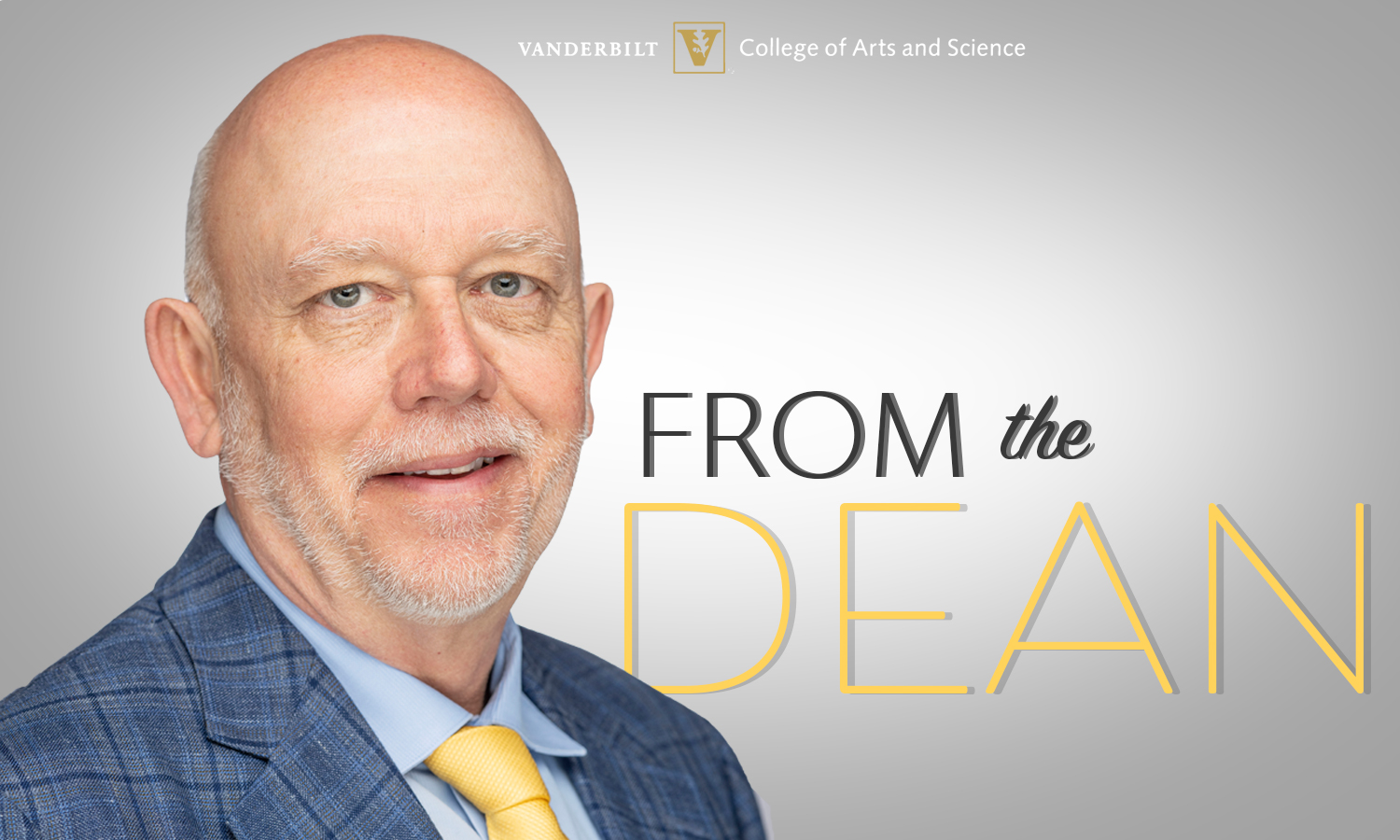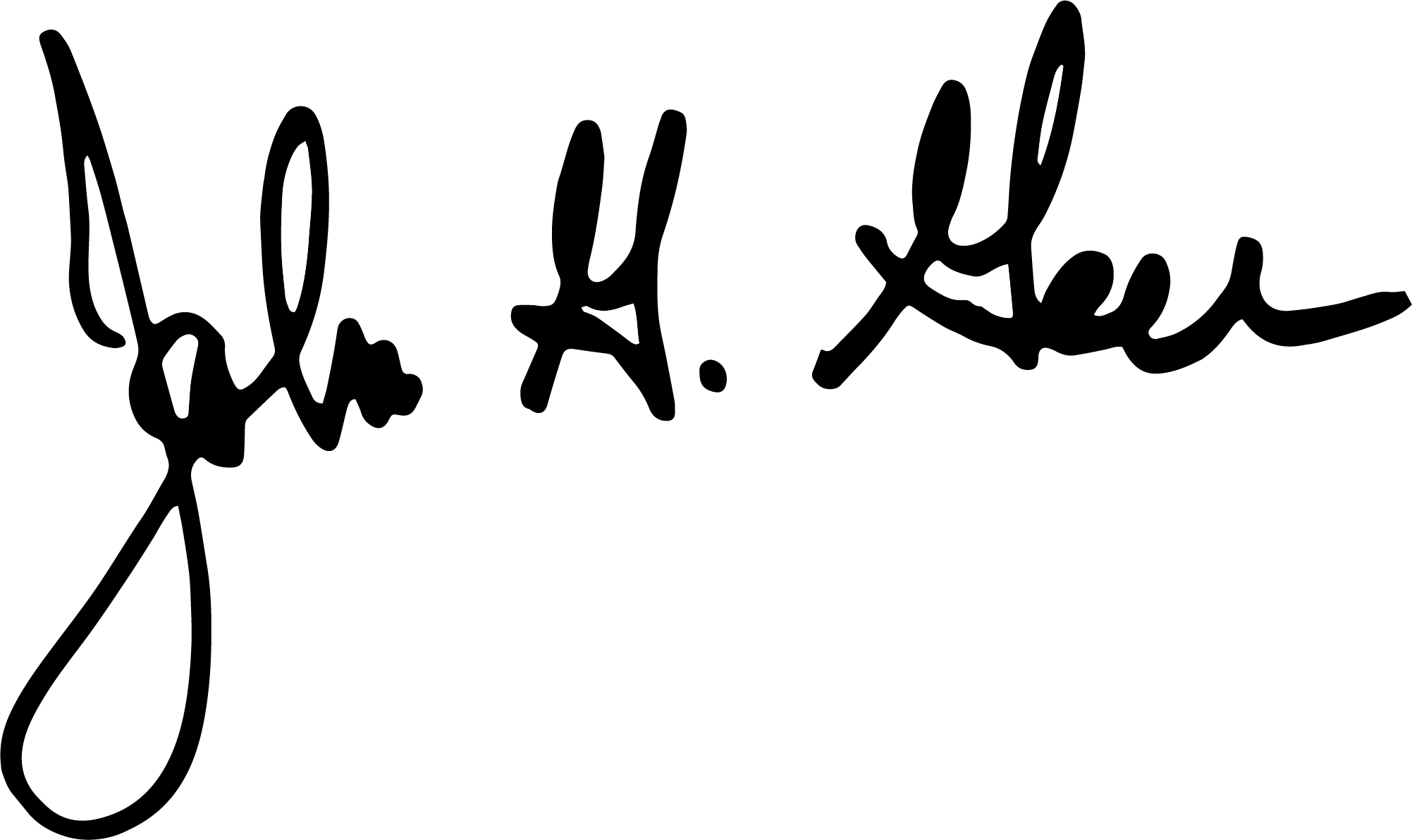From the Dean | February 2022
|
Dear Arts and Science community, Last fall, I had the opportunity to co-teach Unity and American Democracy—a course tackling pressing issues confronting our country. Throughout the semester, we explored moments of deep political polarization across our nation’s history, including the one we face now. The class focused on the importance of evidence-based decision-making to foster greater unity. More than 250 undergraduates enrolled in the class, and I was quite impressed with their interest in, and concern about, what is happening in contemporary society. They asked critical questions, engaged in meaningful debate, and listened thoughtfully to one another. It became clear to me throughout the semester that our talented students—the world’s future leaders and decision-makers—care deeply about reason, evidence, and bridging divides. We may be facing difficult times right now, but our students offer genuine hope for the future. The course arose from the Vanderbilt Project on Unity and American Democracy, which you may recall me mentioning last year (you can sign up for the project’s newsletter here). The Unity Project is a university-wide initiative that aims to advance our democracy by recasting the national conversation, relying on data instead of ideology to drive governmental action. If we use our ideological moorings to guide policy decisions, we will be wrong about half the time. No one belief system has all the answers. Evidence is not always perfect, but it is a far more reliable guide than our own partisan instincts. Of course, these partisan instincts have become more reflexive than reflective these days and, thus, are causing disruption to our political system. The news media and far too many politicians play to tribalism to incite us, as opposed to acknowledging our common ground and what the evidence actually tells us about which policies we should pursue. Now, disagreement itself is not the problem. In fact, disagreement is fundamental to a functioning democracy. Informed debate drives us to more democratic and better outcomes. So, seeking greater unity does not mean forging agreement on matters of policy. Instead, unity means that we seek to adjudicate our differences through our Constitutional framework, rule of law, and the bounds of evidence. We need to find ways to talk and listen to each other. The Unity Project aims to strengthen our country by being a forum for evidence-based conversations. We seek, in other words, not to paint the country with red or blue paint, but instead with a compelling and effective shade of purple. Led by former governor of Tennessee Bill Haslam, Millions of Conversations CEO Samar Ali, and presidential historian and Vanderbilt professor Jon Meacham, the Project on Unity and American Democracy brings together thought leaders from across the political spectrum to share different points of view to inform our thinking. The project has hosted events that tackle thorny issues such as climate change, racial justice, religion, immigration, the Russia-Ukraine conflict, and more. In just its first year, the project has convened former Secretary of State Condoleezza Rice and Vice President Al Gore to discuss the importance of evidence and reason in policy making; former Senate Majority Leader Bill Frist to talk about lawmaking in turbulent times; Bishop Michael Bruce Curry to discuss religion and politics; and former Nashville Mayor Bill Purcell and current Oklahoma City Mayor David Holt to consider how local governments can be more productive than their federal counterpart. The Unity Project is needed now more than ever. Fortunately, we have compelling evidence available to us as well as passionate students and faculty who care deeply about our country. Armed with such information and blessed with an abundance of talent, I am confident that we will be able to put these troubled times behind us and build a bright future. My best,
|



